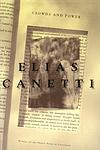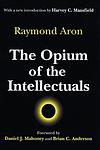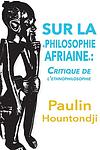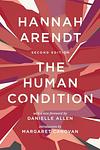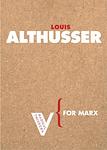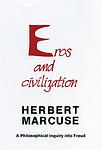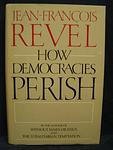The Greatest French, German "Nonfiction, Political" Books Since 1950
Click to learn how this list is calculated.
This list represents a comprehensive and trusted collection of the greatest books. Developed through a specialized algorithm, it brings together 305 'best of' book lists to form a definitive guide to the world's most acclaimed books. For those interested in how these books are chosen, additional details can be found on the rankings page.
Genres
The "Political" category of books encompasses works that explore the theory, practice, and history of government and politics. These books may cover topics such as political ideologies, political systems, political institutions, political movements, and political leaders. They may also examine the relationship between politics and other areas of society, such as economics, culture, and international relations. Political books can be both informative and thought-provoking, offering readers insights into the complexities of the political world and the challenges of governing in a democratic society.
Countries
Date Range
Reading Statistics
Click the button below to see how many of these books you've read!
Download
If you're interested in downloading this list as a CSV file for use in a spreadsheet application, you can easily do so by clicking the button below. Please note that to ensure a manageable file size and faster download, the CSV will include details for only the first 500 books.
Download-
1. The Origins of Totalitarianism by Hannah Arendt
The book explores the roots of totalitarian systems, particularly focusing on Nazi Germany and Stalinist Russia. It delves into the historical, social, and political circumstances that led to the rise of these oppressive regimes, including anti-Semitism, imperialism, and the decline of the nation-state. The author further discusses the nature of power, the role of propaganda, and the manipulation of the masses in these systems, providing a comprehensive analysis of totalitarianism.
The 578th Greatest Book of All Time -
2. Eichmann in Jerusalem: A Report on the Banality of Evil by Hannah Arendt
This book is a thought-provoking exploration of the trial of Adolf Eichmann, a major organizer of the Holocaust. The author argues that Eichmann was not a fanatical ideologue, but rather an ordinary individual who simply followed orders and bureaucratic procedures, highlighting the terrifying potential for evil in any system that values obedience over personal responsibility. The concept of the "banality of evil" is introduced, suggesting that horrific acts can be committed by ordinary people under certain conditions.
The 977th Greatest Book of All Time -
3. Discipline and Punish by Michel Foucault
This book delves into the historical evolution of the penal system, examining how Western societies have transitioned from a regime of violent, public physical punishment to a more subtle form of surveillance and control. It introduces the concept of the "panopticon," a metaphor for modern disciplinary societies that exercise power through observation and normalization rather than through overt physical coercion. The work explores the relationship between power, knowledge, and social control, arguing that disciplinary mechanisms are embedded in various institutions, such as schools, hospitals, and prisons, shaping individuals and maintaining order in society.
The 1064th Greatest Book of All Time -
4. The Rebel by Albert Camus
"The Rebel" is a philosophical exploration of rebellion and revolution. It dissects the nature and origins of rebellion, arguing that it arises from a basic human refusal to accept injustice. The book delves into the many forms rebellion can take, from personal revolt to political revolution, and examines the consequences and ethics of each. The author also critically evaluates the rebellious attitudes of various historical figures and movements, highlighting the potential for rebellion to either affirm or destroy human dignity.
The 1411th Greatest Book of All Time -
5. Crowds And Power by Elias Canetti
This book is a seminal work of social philosophy that explores the dynamics of crowds and their influence on power structures. Delving into the psychology of mass movements and the behavior of individuals within groups, the text examines how crowds emerge, their development, and their impact on history and politics. The author draws from a wide array of disciplines, including sociology, psychology, and anthropology, to analyze the nature of power itself and the role that fear, religion, and symbolism play in the formation and manipulation of collective behavior. The work is both a theoretical study and a critique of the forces that shape human civilization and the often irrational nature of group influence.
The 3279th Greatest Book of All Time -
6. The Opium Of The Intellectuals by Raymond Aron
The book in question is a critical examination of the prevailing political ideologies and intellectual trends of the mid-20th century, particularly focusing on the seductive nature of Marxist thought among European intellectuals. The author argues that these intellectuals often embraced Marxism not for its empirical validity but as a secular religion, an "opium" that provided a comforting sense of certainty and moral superiority. The work challenges the dogmatic adherence to ideological orthodoxy and calls for a more skeptical, empirical approach to social and political analysis, advocating for the values of liberal democracy and the importance of individual freedom over utopian visions.
The 3279th Greatest Book of All Time -
7. A Comparative Study Of Total Power by Karl Wittfogel
The book in question is a scholarly examination of the concept of 'hydraulic civilization,' a term used to describe societies that manage large-scale water projects such as irrigation and flood control. The author argues that the bureaucratic structures necessary to control water resources in arid regions historically led to the centralization of power and the development of autocratic or despotic forms of government. Through comparative analysis, the work explores how the management of water resources influenced social, economic, and political structures, and how this 'total power' shaped the civilizations in question, with a particular focus on Asia. The study delves into the relationship between natural environments, technological capabilities, and the evolution of political systems.
The 3279th Greatest Book of All Time -
8. The Order of Things by Michel Foucault
"The Order of Things" is a philosophical exploration of the historical changes in the human sciences, including economics, natural history, and philology. The author delves into the concept of 'epistemes' or the unconscious rules that govern the way people perceive the world, and how these have changed over the centuries. The book challenges the idea that knowledge has progressively improved over time, instead suggesting that each era has its own unique framework for understanding and interpreting the world.
The 3638th Greatest Book of All Time -
9. The Burden of Our Time by Hannah Arendt
"The Burden of Our Time" is a profound exploration of totalitarianism and the nature of power. The author delves into the rise of authoritarian regimes in the 20th century, particularly focusing on the Nazi and Stalinist systems. The book examines the socio-political conditions that enable such regimes to seize power, and the mechanisms they use to maintain control. It also presents a philosophical analysis of the human condition, exploring themes of freedom, authority, and the public and private realms of life.
The 3663rd Greatest Book of All Time -
10. Portrait Du Colonisé Suivi De Portrait Du Colonisateur by Albert Memmi
"Portrait Du Colonisé Suivi De Portrait Du Colonisateur" is an insightful and thought-provoking exploration of the complex dynamics between the colonized and the colonizer in the context of French colonialism. Through a series of powerful portraits, the author delves into the psychological, social, and cultural aspects of both parties, shedding light on the dehumanizing effects of colonization on the colonized and the inherent contradictions within the colonizer's mindset. This book offers a nuanced analysis of the power dynamics and the lasting impact of colonialism, making it a significant contribution to postcolonial literature.
The 3791st Greatest Book of All Time -
11. Sur La Philosophie Africaine by Paulin Hountondji
"Sur La Philosophie Africaine" is a thought-provoking exploration of African philosophy by Paulin Hountondji. The book challenges the prevailing notion that African thought is inherently inferior to Western philosophy, advocating for a reevaluation of African intellectual traditions. Hountondji critically examines the impact of colonialism on African philosophy and argues for the development of a truly African philosophical framework that embraces cultural diversity and challenges Eurocentric biases. Through his insightful analysis, Hountondji highlights the richness and complexity of African thought, making a compelling case for its recognition and inclusion in the global philosophical discourse.
The 4095th Greatest Book of All Time -
12. Die Totalitäre Erfahrung by Karl Dietrich Bracher
The book in question provides a comprehensive analysis of totalitarianism, exploring the political and social conditions that give rise to such regimes. It delves into the characteristics of totalitarian states, examining how they gain and maintain power through the manipulation of ideology, the use of terror, and the control of mass communication. The work also reflects on the historical instances of totalitarian governments in the 20th century, offering insights into the dangers they pose to individual freedoms and democratic structures. Through its examination of the dynamics of total control, the book serves as a warning about the fragility of democratic institutions and the constant need to defend them against authoritarian threats.
The 4604th Greatest Book of All Time -
13. Black Skin, White Masks by Frantz Fanon
The book explores the complex effects of colonialism on the identities and psyches of black people. It delves into the psychological and social impacts of racism, analyzing how the internalization of colonial stereotypes leads to a fractured sense of self among the colonized. The author argues that black people are forced to wear "white masks" to navigate a world dominated by white values and expectations, leading to significant psychological distress and identity conflicts. The work is a critical examination of race, identity, and the lingering effects of colonial oppression.
The 4688th Greatest Book of All Time -
14. The Theory Of Communicative Action by Jürgen Habermas
The book is a seminal work in social theory that explores the concept of communicative action, where individuals interact based on mutual understanding and pursue rational arguments, consensus, and cooperation rather than merely acting for individual success. The author critiques the instrumental and strategic action in modern societies and argues that communicative action is essential for maintaining the rationality and democratic nature of human interactions. The work delves into the structures of how language and social interaction form the basis of society and how distortions in communication can lead to social issues, emphasizing the importance of transparent and undistorted communication in achieving genuine understanding and societal cohesion.
The 4842nd Greatest Book of All Time -
15. Memoirs Of A Revolutionary by Victor Serge
"Memoirs of a Revolutionary" presents a vivid account of political activism and survival during a turbulent period in 20th-century Europe. The author, a committed revolutionary, provides an insider's perspective on the rise and fall of various socialist movements, detailing his involvement in the Russian Revolution and subsequent disillusionment with the Stalinist regime. Through his narrative, he explores the moral and ethical challenges faced by intellectuals and activists in a time of revolutionary fervor and political repression, offering a poignant reflection on the struggles and sacrifices of those who dedicate their lives to the cause of social change.
The 5517th Greatest Book of All Time -
16. The Human Condition by Hannah Arendt
The book in question is a philosophical examination of the nature of human activities: labor, work, and action, and their fundamental role in the fabric of society. The author delves into the historical development of these activities, distinguishing them from one another and exploring their transformation in the modern age. The text critically reflects on the decline of the public realm and the rise of the private, the impact of automation on human purpose, and the loss of meaningful political action in contemporary life. The work is a profound inquiry into the ways in which human beings interact with the world, each other, and themselves, ultimately seeking to understand the conditions under which individuals live, act, and establish their presence in the world.
The 5517th Greatest Book of All Time -
17. Oriental Despotism by Karl August Wittfogel
"Oriental Despotism" presents a theory that ancient bureaucratic societies, particularly those in Asia, developed as a result of the need to manage large-scale irrigation systems. The author argues that the control of water resources in arid regions led to the creation of centralized, autocratic power structures, which he terms "hydraulic despotisms." These governments wielded significant control over their subjects, as the management and distribution of water was crucial for agriculture and survival. The book explores how this form of governance influenced the political and social structures of various Eastern civilizations, contrasting them with Western societies that developed under different ecological conditions.
The 5517th Greatest Book of All Time -
18. For Marx by Louis Althusser
"For Marx" is a collection of essays that delve into the complexities of Marxist theory, aiming to rejuvenate and redefine Marxist philosophy in the context of the 20th century. The book critically examines existing interpretations of Marxism while introducing the concept of "theoretical practice." The author argues for the scientific rigor of Marxist thought and emphasizes the importance of ideology's role in political struggles. Through a structuralist approach, the work seeks to distance itself from humanist and economistic readings of Marxism, advocating for a return to the foundational texts and insisting on the revolutionary potential embedded in rigorous theoretical analysis.
The 5517th Greatest Book of All Time -
19. The Society Of The Spectacle by Guy Debord
"The Society of the Spectacle" is a critical philosophical treatise that explores the ways in which modern society is dominated by the commodification of social life and the pervasive influence of mass media. The author argues that authentic social interactions have been replaced by mere representations and appearances, facilitated by an array of spectacles—events, images, and media that serve to maintain the status quo by promoting passive recognition and consumption rather than active participation. This work delves into the consequences of living in a society where everything that was directly lived has moved away into a representation, examining the implications for individual autonomy and social change.
The 5517th Greatest Book of All Time -
20. Eros And Civilization by Herbert Marcuse
"Eros and Civilization" is a seminal work in critical theory that explores the interplay between societal structures and human desires. The book argues that the progress of civilization has necessitated the repression of basic human instincts and desires, as dictated by the performance principle governing capitalist societies, which prioritizes productivity and control over pleasure. Drawing on Freudian psychoanalysis, the author proposes the possibility of a non-repressive society where pleasure and work can coexist harmoniously. This work challenges traditional notions of utility and rationality in modern industrial societies, advocating for a liberation of human desires through aesthetic and libidinal expressions that could lead to a more fulfilling existence.
The 5517th Greatest Book of All Time -
21. How Democracies Perish by Jean François Revel
This book provides a deep analysis of the threats faced by democracies, specifically from totalitarian regimes. The author argues that democracies are often their own worst enemies, being too tolerant and indecisive, which can lead to their downfall. He further discusses how democracies can be manipulated by totalitarian regimes through propaganda and misinformation. The book serves as a warning and a call to action for democratic societies to recognize these threats and take steps to defend their values and institutions.
The 5627th Greatest Book of All Time -
22. Stranglehold On Africa by René Dumont
"Stranglehold on Africa" is a critical examination of the post-colonial economic and political challenges faced by African nations. The book delves into the detrimental effects of foreign aid dependency, the exploitation of African resources by Western countries, and the pervasive corruption and mismanagement within African governments. The author argues that these factors have collectively hindered sustainable development and perpetuated a cycle of poverty and underdevelopment. Through a blend of analysis and firsthand observation, the book calls for a reevaluation of international policies and aid strategies, advocating for more equitable and sustainable approaches to supporting Africa's self-sufficiency and growth.
The 6085th Greatest Book of All Time -
23. Prisoner Of Love by Jean Genet
"Prisoner of Love" is a non-fiction book that blends memoir, history, and philosophical reflection. It chronicles the author's experiences in the late 1960s and early 1970s among Palestinian fedayeen (guerrilla fighters) and later, in the mid-1970s, with the Black Panthers in Jordan. The narrative delves into the daily lives of these revolutionaries, their struggles, and the author's own reflections on issues of love, loyalty, and identity. Through his immersive and poetic prose, the author explores the complexities of political commitment and the human condition, offering a deeply personal yet universally resonant account of solidarity and resistance.
The 6454th Greatest Book of All Time -
24. Capital in the Twenty-First Century by Thomas Piketty
This book provides a comprehensive analysis of the dynamics of capital accumulation and distribution over the last few centuries. The author argues that the rate of capital return in developed countries is persistently greater than the rate of economic growth, leading to high levels of wealth inequality. The book further suggests that the level of income inequality is not primarily a result of differences in individual labor income but rather the result of differences in capital ownership and the income derived from it. The author proposes a global tax on wealth to prevent soaring inequality.
The 6638th Greatest Book of All Time -
25. Capitalism, Socialism, Ecology by Andre Gorz
In "Capitalism, Socialism, Ecology," the author explores the complex relationships and conflicts between economic systems and environmental sustainability. He critically examines the failures of both capitalism and real-existing socialism in addressing ecological crises, arguing that neither system is adequately equipped to tackle the environmental challenges of our time. The book advocates for a new ecological order that transcends traditional economic paradigms, proposing a radical restructuring of societal values and economic practices to prioritize sustainability, social justice, and human well-being over profit and growth. Through this analysis, the author contributes to the broader discourse on environmental politics and the search for viable alternatives to unsustainable economic models.
The 6687th Greatest Book of All Time
Reading Statistics
Click the button below to see how many of these books you've read!
Download
If you're interested in downloading this list as a CSV file for use in a spreadsheet application, you can easily do so by clicking the button below. Please note that to ensure a manageable file size and faster download, the CSV will include details for only the first 500 books.
Download



